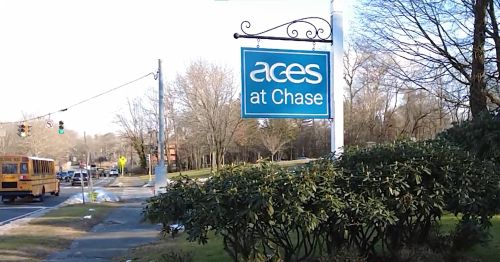-
Our Agency
- About Us
- Calendars
- Contact Us
-
Directions
- ACCESS
- ACES Chase Academy
- ACES International Preschool and Childcare Center
- ACES Transportation Services
- Center for Autism Spectrum and Developmental Disorders
- Central Office
- Educational Center for the Arts
- Educational Technology
- Little Theatre on Lincoln Street
- Mill Road School
- Network Services
- Staff Development / Administration
- Village School
- Whitney High School North
- Wintergreen Interdistrict Magnet School
- Human Capital Development
- Education Foundation
- News / Press
- Publications
- Request for Proposals
- Employment
- Events & Workshops
- Referrals
-
Schools & Programs
-
Special Education Schools
- Center for Autism Spectrum and Developmental Disorders
- Mead Elementary School
- Mill Road School
- Village School
- Whitney Academy EXPLORE & CREATE
- Whitney High School North
- Perry Hill Nest
- Brightwell Academy
-
Magnet Schools
-
ACES Chase Academy
- About Us
- ACES Chase Academy: History & Origins
- Admissions
-
Student and Family Portal
- Breakfast and Lunch Menus
- Cancellations, Delays, and Early Dismissal
- Community Health Center
- Dress Guidelines
- Family Teacher Organization (FTO)
- Principal's Corner
- Monitoring Grades: PowerSchool Parent Portal
- Quick Links
- Student Handbook
- Athletics Handbook
- Summer Reading and Math
- Technology & Digital Citizenship
- Virtual Suggestion Box
- Document Library
- Contact Us
- Back to ACES
- Educational Center for the Arts
- Wintergreen Interdistrict Magnet School
-
ACES Chase Academy
- Alternative Education
- ACES Early Head Start
- ACES International
- ACES International Preschool and Childcare Center
- ACES Open Choice
- Family and Community Engagement
- Magnet Choice
- School-Based Services
-
Special Education Schools
-
Services
- ACCESS Adult Vocational Services
- ACES Insurance Collaborative
- ACES UP Renewable Energy Solutions
- Alternate Routes to Certification
- Business Partnership Opportunities
- Center for School Safety & Wellness
- Clinical Services
- Educational Technology
- Facility Rental
- Fingerprinting
- International Programming
- Marketing and Communications Services
- Network Services
- Professional Learning
- Regional Education Councils
- Regional Special Education Transportation
- Speech and Language Services
- Transportation
- World Language Translation Services
- Find
Acceptance into ACES Programs is done in conjunction with the district PPT process by the student’s home district. We accept students based on district referral from the PPT team. Referrals are initially sent to the External Director of ACES Pupil Services who screens and forwards them to the appropriate program. After receiving a referral, programs will review the records and, if appropriate, schedule an intake tour and assessment. Following this assessment, the School will meet to determine if the needs of the student can be met within our program.
Please enter all referrals here
About Pupil Services
ACES Pupil Services department specializes in providing support to students within the educational setting. The Related Services that are provided to the ACES Schools include:
- Achievement
- ADOS II (and other subtests as needed)
- Assistive Technology
- Cognitive
- Nursing
- Occupational Therapy
- Physical Therapy
- Psychology
- Risk Assessment
- School Counseling
- Social Work
- Speech/Language
- Transition
as well as other related Pupil Services.
Please contact Kevin Keating or Maddie Colon (mcolon@aces.org, 203-498-6879) for all inquiries









